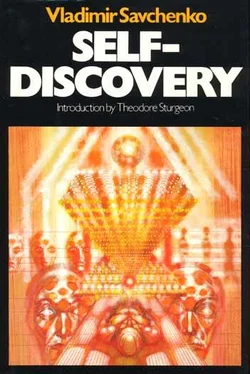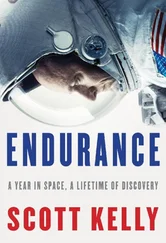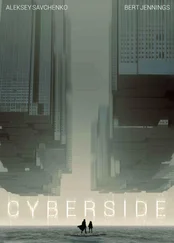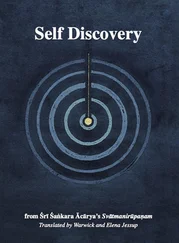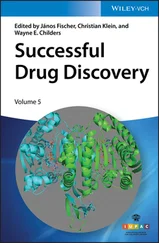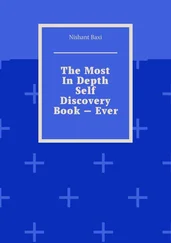Vladimir Savchenko - Self-discovery
Здесь есть возможность читать онлайн «Vladimir Savchenko - Self-discovery» весь текст электронной книги совершенно бесплатно (целиком полную версию без сокращений). В некоторых случаях можно слушать аудио, скачать через торрент в формате fb2 и присутствует краткое содержание. Город: NEW YORK — LONDON, Год выпуска: 1979, Издательство: MACMILLAN PUBLISHING CO., INC; COLLIER MACMILLAN PUBLISHERS, Жанр: Фантастика и фэнтези, на английском языке. Описание произведения, (предисловие) а так же отзывы посетителей доступны на портале библиотеки ЛибКат.
- Название:Self-discovery
- Автор:
- Издательство:MACMILLAN PUBLISHING CO., INC; COLLIER MACMILLAN PUBLISHERS
- Жанр:
- Год:1979
- Город:NEW YORK — LONDON
- ISBN:нет данных
- Рейтинг книги:3 / 5. Голосов: 1
-
Избранное:Добавить в избранное
- Отзывы:
-
Ваша оценка:
- 60
- 1
- 2
- 3
- 4
- 5
Self-discovery: краткое содержание, описание и аннотация
Предлагаем к чтению аннотацию, описание, краткое содержание или предисловие (зависит от того, что написал сам автор книги «Self-discovery»). Если вы не нашли необходимую информацию о книге — напишите в комментариях, мы постараемся отыскать её.
Self-discovery — читать онлайн бесплатно полную книгу (весь текст) целиком
Ниже представлен текст книги, разбитый по страницам. Система сохранения места последней прочитанной страницы, позволяет с удобством читать онлайн бесплатно книгу «Self-discovery», без необходимости каждый раз заново искать на чём Вы остановились. Поставьте закладку, и сможете в любой момент перейти на страницу, на которой закончили чтение.
Интервал:
Закладка:
Vladimir Savchenko
SELF — DISCOVERY
Translated from the Russian by Antonina W. Bouis
Introduction by Theodore Sturgeon
MACMILLAN PUBLISHING CO., INC. NEW YORK
COLLIER MACMILLAN PUBLISHERS LONDON
Translation of Otkrytie sebia.
Contents
INTRODUCTION
PART ONE:Footsteps from Behind
PART TWO:Self — Discovery
PART THREE:Awakening Introduction
ARE YOU ONE SELF OR MANY SELVES?
Robert Anton Wilson, in his Cosmic Trigger, describes his reactions to various events as those of The Author, The Skeptic, The Sage, The Neurologician, The Shaman, and other personae — all Wilson himself, of course, and by no means the “multiple personality” image first made popular by Dr. Morton Prince in the early years of this century; facets, rather, of any whole human being, and not a host of separate entities.
Who, inside yourself, calmly watches you flying into a rage or drifting in ecstasy or capturing an audience? Do you, as so many do, refer to “a little person who watches” or “the part of myself that always observes, never participates”?
(And why do so many of us describe the watcher as a little person? Sometimes I suspect that mine is big — maybe bigger than I.)
These are the questions — the kinds of questions, of provocations — evoked by Vladimir Savchenko and his astonishing novel, for at the heart of his story is the problem of self and personal identity. Krivoshein, the brilliant young experimenter in cybernetics who is the hero of the novel, discovers a way to duplicate human beings and, working secretly, brings into the world many versions of himself.
So you will encounter many Krivosheins here; but in no way are they identical. This is not cloning, nor is it the kind of duplication described by Eric Temple Bell in The Four — sided Triangle, nor the rather unbelievable one I used in When You Care, When You Love. This is something quite different and, as far as I know, unique. It’s a computer — controlled biological matrix, an intelligent fluid, if you like, capable of organizing, balancing, integrating organic substances. Add such new concepts as a holographic model as applied to brain function — wherein each cell of a section seems to contain all functions of that section, just as each segment of a holograph contains all parts of its picture — and you come close to an understanding of Krivoshein’s scientific accomplishment. Fascinating, and described with such realism that one is tempted to apply for a grant, build it, check it out.
Apply for a grant. Savchenko has woven into his narrative a devastating and delicious analysis of the internal politics of a great research center doing erudite science which politicians cannot hope to comprehend, but to whom the scientific community must turn for funding. Then follows the same dreadful situation so brilliantly described — decried? — by Leo Szilard, which takes the best scientists out of the laboratory and puts them in administration, where they must work shoulder to shoulder with administrators who would be hopeless in a lab. Millions of words have been written about the differences in customs, cultures, political systems, philosophies; how amazing it is to see how very similar are the symptoms of this plague wherever it strikes! Ignorance is ignorance, pomposity is pomposity, and self — aggrandizement is the same in any language, common as frustration. Whoever reads this and does not recognize the administrator Harry Hilobok, for example, or the outwardly grumpy, inwardly sensitive Androsiashvili, has never been exposed to the internal workings of large research centers anywhere.
It has been observed that a writer says, basically, one thing, and says it over and over, no matter how wide his spectrum or in how many different ways he may say it. I am, regretfully, unfamiliar with Savchenko’s other works, but his thrust is clear here. Let me give you some of it by quoting:
“Man is the most complex and most highly organized system known. I want to figure it out completely — how things are constructed in the human organism, what influences it….
“You see… it wasn’t always like this. Once man was up against heat and frost; exertion from a hunt or from running away from danger; hunger, or rough, unsanitary food like raw meat; heavy mechanical overloads in work; fights which tested the durability of the skull with an oak staff — in a word, once upon a time the physical environment made the same demands on man that — well, that today’s military customers make on rockets…. That environment over the millennia formed homo sapiens — the reasoning vertebrate mammal. But in the last two hundred years, if you start from the invention of the steam engine, everything changed. We created an artificial environment out of electric motors, explosives, pharmaceuticals, conveyors, communal service systems, computers, immunization, transport, increased radiation in the atmosphere, paved roads, carbon monoxide, narrow specialization in work — you know: contemporary life. As an engineer, I with others am furthering this artificial environment that determines ninety percent of the life of homo sapiens and soon will determine it one hundred percent. Nature will exist only for Sunday outings. But as a human being, I am somewhat uneasy….
“This artificial environment frees man of many of the qualities and functions he developed in ancient evolution. Strength, agility, and endurance are now cultivated only in sports, while logical thought, the pride of the Greeks, has been taken over by machines. But man is not developing any new qualities — the environment is changing too fast and biological organisms can’t keep up. Technological progress is accompanied by soothing, but poorly substantiated babble that man will always be on top. Nevertheless — if you talk not about man, but about people, the many and the varied — then that is not true even now, and it will only get worse. Many, many do not have the inherent capabilities to be masters of contemporary life: to know a lot, know how to do a lot, learn new things quickly, to work creatively, and structure one’s behavior optimally….
“I would like to study the question of the untapped resources of man’s organism. For example, the obsolescent functions, like our common ancestor’s ability to leap from tree to tree or to sleep in the branches. Now that is no longer necessary, but the cells are still there. Or take the “goosebump” phenomenon — it happens on skin that has almost no hair now. It is created by a vast nervous network. Perhaps these old reflexes can be restructured, re — programmed to meet new needs?”
What an astonishing, what an exciting concept! The pursuit of the “optimum man” is certainly not original with Savchenko; it has thrived for years in science fiction as well in what is termed the mainstream, and it powers the current flurry of self — realization, self — actualization movements; it exists in Shakespeare and Steinbeck, whether by exemplifications of nobility or by stark representations of flawed and faulted people. What is arresting in Savchenko is his idea of retrieving and reprogramming that in mankind which is present but truly obsolete, rather than that which could be functional but is merely inactive.
And he resists the reductio ad absurdum; witness this whimsical interchange:
“So! You dream of modernizing and rationalizing man? Instead of homo sapiens we’ll have homo modernus rationalis, hm? Don’t you think, my dear systemology technologist, that a rational path might lead to a man who is no more than a suitcase with a single appendage to push buttons? You could probably manage without that appended arm, if you use brain waves.”
Читать дальшеИнтервал:
Закладка:
Похожие книги на «Self-discovery»
Представляем Вашему вниманию похожие книги на «Self-discovery» списком для выбора. Мы отобрали схожую по названию и смыслу литературу в надежде предоставить читателям больше вариантов отыскать новые, интересные, ещё непрочитанные произведения.
Обсуждение, отзывы о книге «Self-discovery» и просто собственные мнения читателей. Оставьте ваши комментарии, напишите, что Вы думаете о произведении, его смысле или главных героях. Укажите что конкретно понравилось, а что нет, и почему Вы так считаете.
